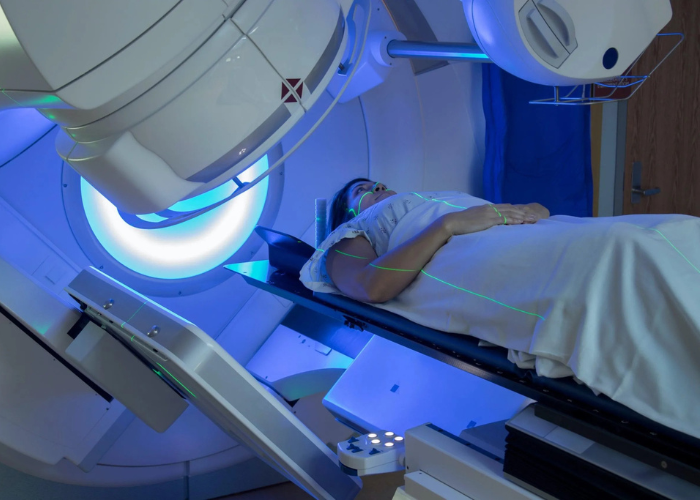Services & Specialties
Surgical Oncology
Surgical oncology is a branch of surgery applied to oncology.
This branch of surgery continues to witness widespread use.

Head & Neck Cancer
Cancers formed in the head and neck region are referred to as squamous cell carcinomas. They can form in the oral cavity, throat, voice box, nasal cavity, or salivary glands. The treatment for head and neck cancers includes radiation therapy, chemotherapy, targeted therapy, immunotherapy, or a combination of these treatments.

Breast Cancer
Followed by skin cancer, breast cancer is the most common type of cancer diagnosed in women. Development of a lump in the breast or thickening, along with changes in the size, shape, or appearance of a breast are some of the most common symptoms of breast cancer. Preventive medications and preventive surgery are now helping more and more individuals avert the risk of breast cancer.

Cervical Cancer
Cervical cancer is a type of cancer that affects the cells of the cervix, which is the lower part of the uterus. Strains of the human papillomavirus (HPV), which is a sexually transmitted infection, are known to cause most cases of cervical cancer. Undergoing screening tests and receiving a vaccine that protects against HPV infection are ways to prevent cancer

Colorectal Cancer
Colorectal cancer affects the cells in the colon or rectum. Screening tests can find polyps, or unnatural growth of cells, in the region, allowing surgical removal before developing into cancer. this also helps in enhancing the efficacy of the treatment.

Hepatobiliary Cancer
Hepatobiliary cancer refers to the cancer of the bile duct, gallbladder, or liver. these organs help produce bile, which aids in the digestion of food. bile duct surgery, biliary bypass, and chemotherapy with hepatic arterial infusion are some forms of available treatment measures.

Pancreatic Cancer
Pancreatic cancer begins in the tissues of the pancreas, which is an organ in the abdomen, behind the lower part of the stomach. Pancreatic cancer often doesn’t cause symptoms until after it has spread to other organs. Quitting smoking, maintaining a healthy weight, and choosing a healthy diet are some of the necessary preventive steps one can take.

Urological Cancer
Genitourinary cancer begins in the urinary tract, adrenal glands, kidney, ureter, bladder, urethra, penis, testicles, prostate, and male reproductive organs. With the help of advanced imaging, biopsy, digital rectal exam, and routine tests, specialists can diagnose cancer. Palliative surgery, Radiation oncology, and targeted therapy are some of the treatment options.

Medical Oncology
Medical Oncology communicates the results of clinical and experimental research in oncology and hematology. Medical oncologists treat all types of adult cancers and blood disorders.
Radiation Oncology
Radiation oncology (radiotherapy/radiation treatment) is a clinical specialty that is a fundamental piece of a multidisciplinary way to deal with disease therapy. It utilizes high-energy x-rays most generally conveyed through a straight gas pedal. These remedial x beams are easy and imperceptible and are utilized to treat various malignant growths. The direct gas pedal is housed inside a disease place and a multidisciplinary group involving radiation oncologists (your expert specialist), medical attendants, radiation advisors, and clinical physicists will converse with you about radiation treatment as a therapy choice, evaluate you, plan and convey your therapy along with assistance you with any secondary effects you experience.


Hyperthermic (or Heated) Intraperitoneal Chemotherapy (HIPEC)
Hyperthermic (or Heated) Intraperitoneal Chemotherapy (HIPEC) is an advanced surgical procedure used to treat abdominal cancers. Using a heated chemo bath, high doses of drugs are delivered to all parts of the abdomen. This treatment directly targets cancerous cells.

Genetic Counselling
Genetic counseling provides information about the genetic conditions that may affect you, your family, and your future generations. The genetic counselor collects your personal and family health history and your genetic sequence to identify how likely it is for one to suffer the genetic condition. Based on the information received, the genetic counselor helps decide whether a genetic test might be right for you or your relative.

Pharmacy
The on-site pharmacy provides advanced drugs and medications to the patients. Curative drugs, necessary for accurate treatment are all available at the hospital pharmacy.

Trust Help
With the aim of saving more and more lives, the hospital has tied up with numerous trusts, which deliver quality diagnosis and treatment at reduced costs. Driving healthcare to the furthest of homes and most underprivileged lives, trusts help advance our cause of affordable healthcare.
Let's Beat Cancer Together
Western India Cancer Care is with you at every step along the way in your fight against cancer.